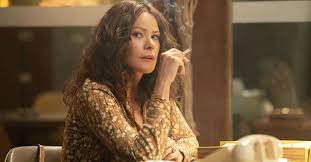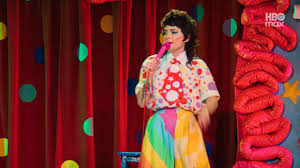Griselda 2024 Tv Show Series Cast Crew Online
“Griselda” is a revenge story. Yes, it’s an account of real-life drug queenpin Griselda Blanco’s (an engrossing Sofía Vergara) rise to The Godmother of the Medellín Cartel. But this tale isn’t an account of some distressed damsel who gets swept up in the underworld. Instead, what creator Eric Newman offers is a window into the mind of a highly meticulous and intelligent woman, intent on taking back everything that was ever stolen from her, even if she destroys herself in the process. Fast-paced and well-acted, the show is brutal, fascinating and full of high drama. It all begins with a bold escape.
Produced by the team behind “Narcos,” the limited series opens in the late 1970s in Medellín, Columbia. An obviously distressed, injured Griselda rushes in the front door of her well-curated home. She makes a frantic phone call to a friend, Carmen (Paulina Dávila), before packing a bag and rousing her sons, Ozzy (Martín Fajardo), Uber (Jose Velazquez) and Dixon (Orlando Pineda). As she ushers the boys out of the house, suitcases in hand, she informs them she is divorcing their stepfather and they are moving to Miami.
Griselda leaves things unsettled in Medellín, which plays out later on, but when she and her sons land in Miami in 1978, she eagerly embraces the city’s frenetic energy. Despite the predictable beats of the show, what’s fascinating about “Griselda” is that the audience meets her exactly in the middle of her life; this is hardly the beginning of her story. It’s immediately clear that reinvention is something Griselda has mastered.
Cramped in Carmen’s tiny house with her three sons, Griselda isn’t content to work the front desk at her friend’s travel agency. Undeterred by the promises she’s made to Carmen regarding getting out of the drug game, she begins working immediately to sell the kilo of coke she’s smuggled into the country. Determined to rebuild for herself and her children, the show depicts the crime boss painstakingly carving out a plan for complete power. She shifts and changes her tactics as she encounters misogyny, machoism, violence and intimidation. For Vergara, who serves as an executive producer on the show and has built her career in the comedy space, watching her transform into an increasingly agitated and vicious woman is something to behold — prosthetics and 1970s fashion included.
While “Griselda” compresses the three years of La Jefa’s time in South Florida into just six hour-long chapters, not a moment or line of dialogue is wasted. No character or choice is insignificant. The scenes are so sharply cut that the series is perfectly paced. As carefully as the show outlines Griselda’s rise as a savior to the oppressed, by Episode 5, “Paradise Lost,” which jumps ahead to 1981, it’s clear this life of bloodshed, police surveillance and intense paranoia has morphed Griselda into someone else entirely. Touting a shorter haircut, weathered skin and yellowing teeth, she has become a crack-cocaine-fueled Scarface-like monster in a lavish castle. A delirious episode that showcases tropes of telenovelas, it’s almost unsettling to watch, but the chaotic narrative reveals how quickly power and greed can warp the human spirit.
The entire cast, including Vergara, is stellar in this display of ambition and retaliation. However, Martín Rodríguez’s turn as Jorge “Rivi” Ayala-Rivera, a top-hitter in Miami, is one of the most mesmerizing performances of a criminal mastermind on TV recently. Slithery, erratic and sensual, he has a disturbing presence anchoring the audience in the era and super-specific world. The performances and the setting make up for a few elements that don’t quite meld in “Griselda,” including a hand-motion Griselda makes while holding a cigarette throughout the series. It’s supposed to demonstrate how her mind devises her plans, but it feels too on the nose. There is also a strange slow-motion scene from Episode 2, “Rich White People,” which doesn’t quite fit the show’s tone.
Still, even with its minor missteps, “Griselda” soars, showcasing a woman who transforms into a predator after being prey for so long. Though it certainly isn’t aspirational, there is much to be said about taking control of one’s narrative. After all, if we are honest with ourselves, some of the things that we do are to survive. But others are to feed our pride and egos.




